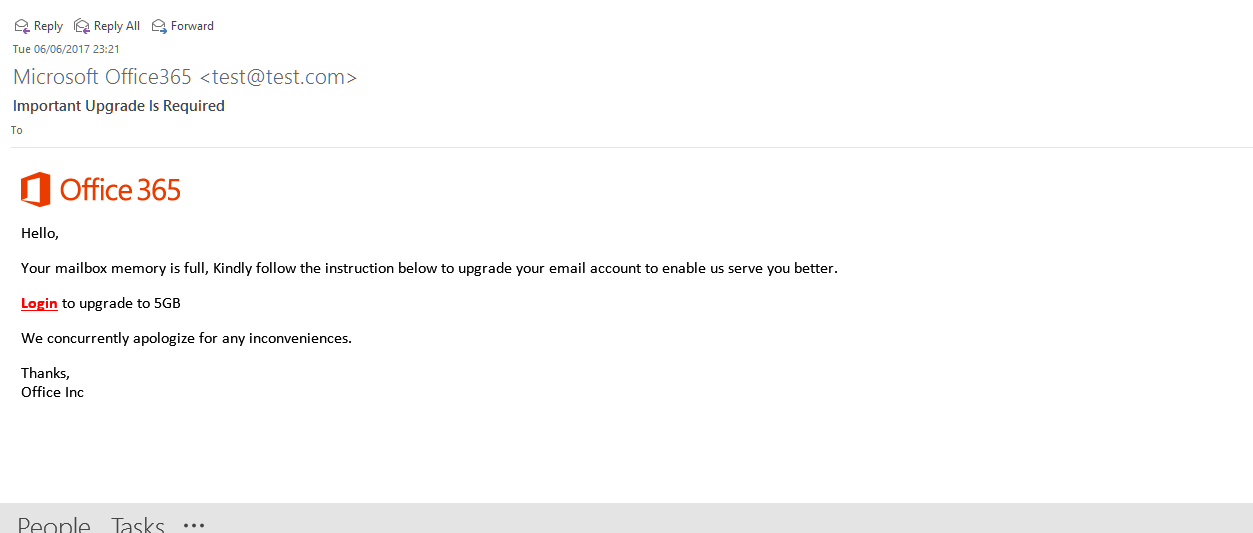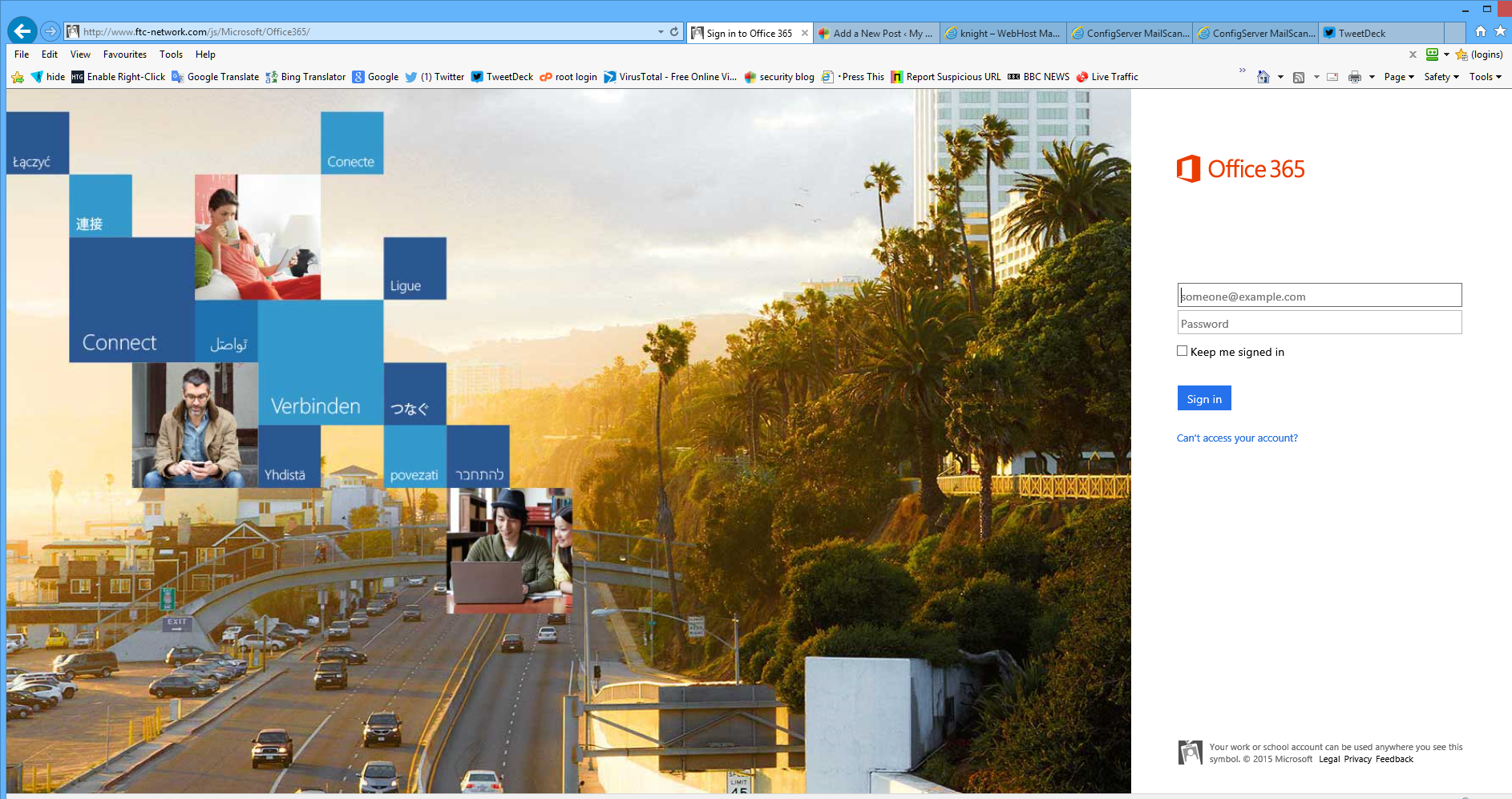We see lots of phishing attempts for email credentials. This one is a typical one. It pretends to be a message from Microsoft Office365 saying your mailbox is full. It is so obvious from the style of the email that these are not written by a native English speaker.
I am getting totally fed up of these that are using a compromised site ( that has been reported more times than I have eaten hot breakfast) These criminals performing the phishing scams have been using the domain for months now. I have reported to everybody I can with no obvious action. Either the site still has vulnerabilities allowing it to be continually re-used in this criminal activity or the reports have been totally ignored.
To protect my users I blacklist the email address [email protected]. I still see the emails in the server quarantine, but no user will receive them.
They use email addresses and subjects that will entice a user to read the email and open the attachment. A very high proportion are being targeted at small and medium size businesses, with the hope of getting a better response than they do from consumers.
Remember many email clients, especially on a mobile phone or tablet, only show the Name in the From: and not the bit in <domain.com >. That is why these scams and phishes work so well.
The email looks like:
From: Microsoft Office365 <[email protected]>
Date: Tue 06/06/2017 23:21
Subject: Important Upgrade Is Required
Body Content:
Hello,
Your mailbox memory is full, Kindly follow the instruction below to upgrade your email account to enable us serve you better.Login to upgrade to 5GB
We concurrently apologize for any inconveniences.
Thanks, Office Inc
Screenshot:

If you follow the link in the email You first get sent to ‘http://ronaldsinkwell.com.br/js/Office365/Secure/’ where you get an immediate redirection to and you see a webpage looking like this: http://www.ftc-network.com/js/Microsoft/Office365/

We all get very blasé about phishing and think we know so much that we will never fall for a phishing attempt. Don’t assume that all attempts are obvious. Watch for any site that invites you to enter ANY personal or financial information. It might be an email that says “you have won a prize” or “sign up to this website for discounts, prizes and special offers”
Please read our How to protect yourselves page for simple, sensible advice on how to avoid being infected by this sort of socially engineered malware.
All of these emails use Social engineering tricks to persuade you to open the attachments that come with the email. Whether it is a message saying “look at this picture of me I took last night” and it appears to come from a friend or is more targeted at somebody who regularly is likely to receive PDF attachments or Word .doc attachments or any other common file that you use every day. Or whether it is a straight forward attempt, like this one, to steal your personal, bank, credit card or email and social networking log in details.
Be very careful when unzipping them and make sure you have “show known file extensions enabled“, And then look carefully at the unzipped file. If it says .EXE then it is a problem and should not be run or opened.
